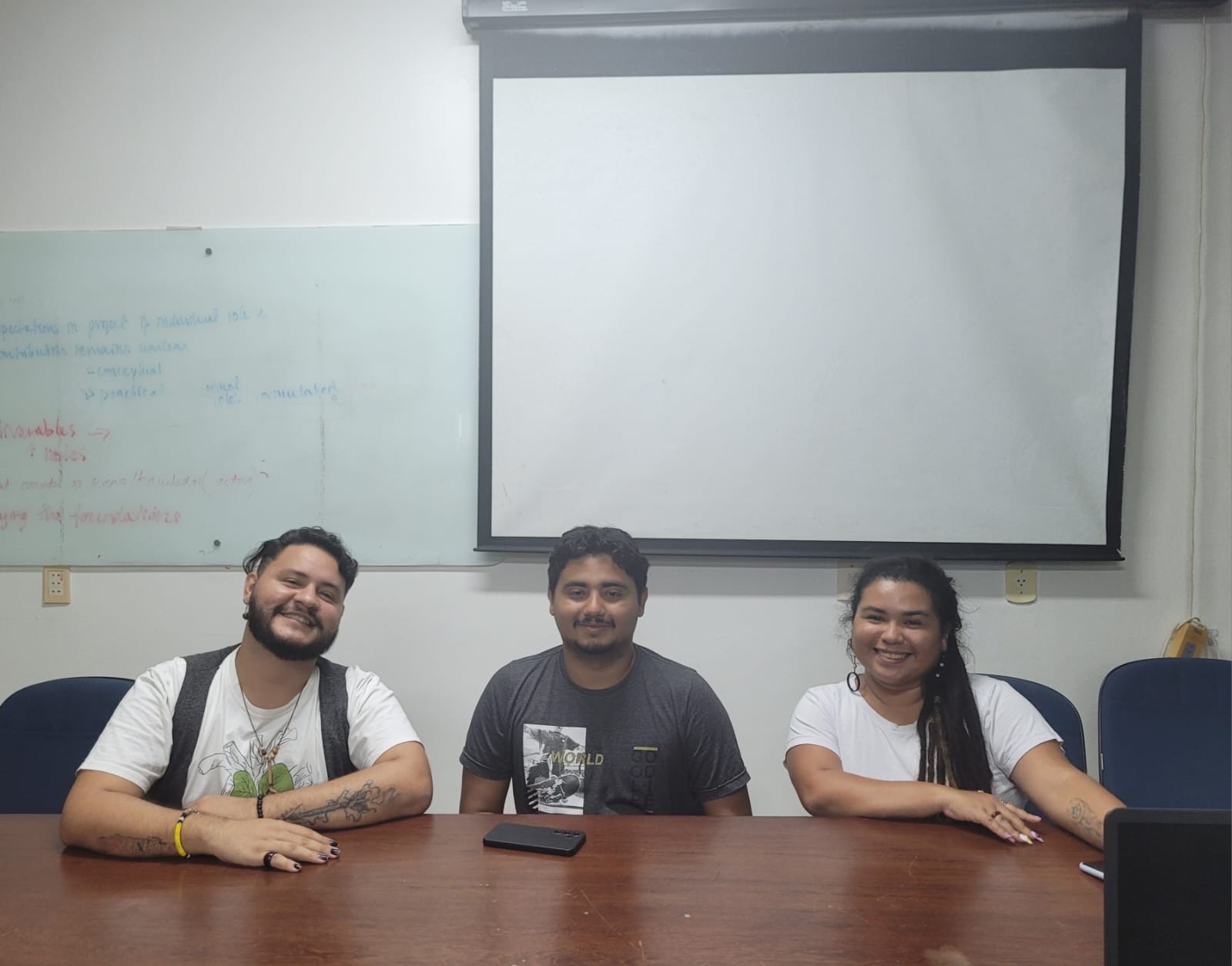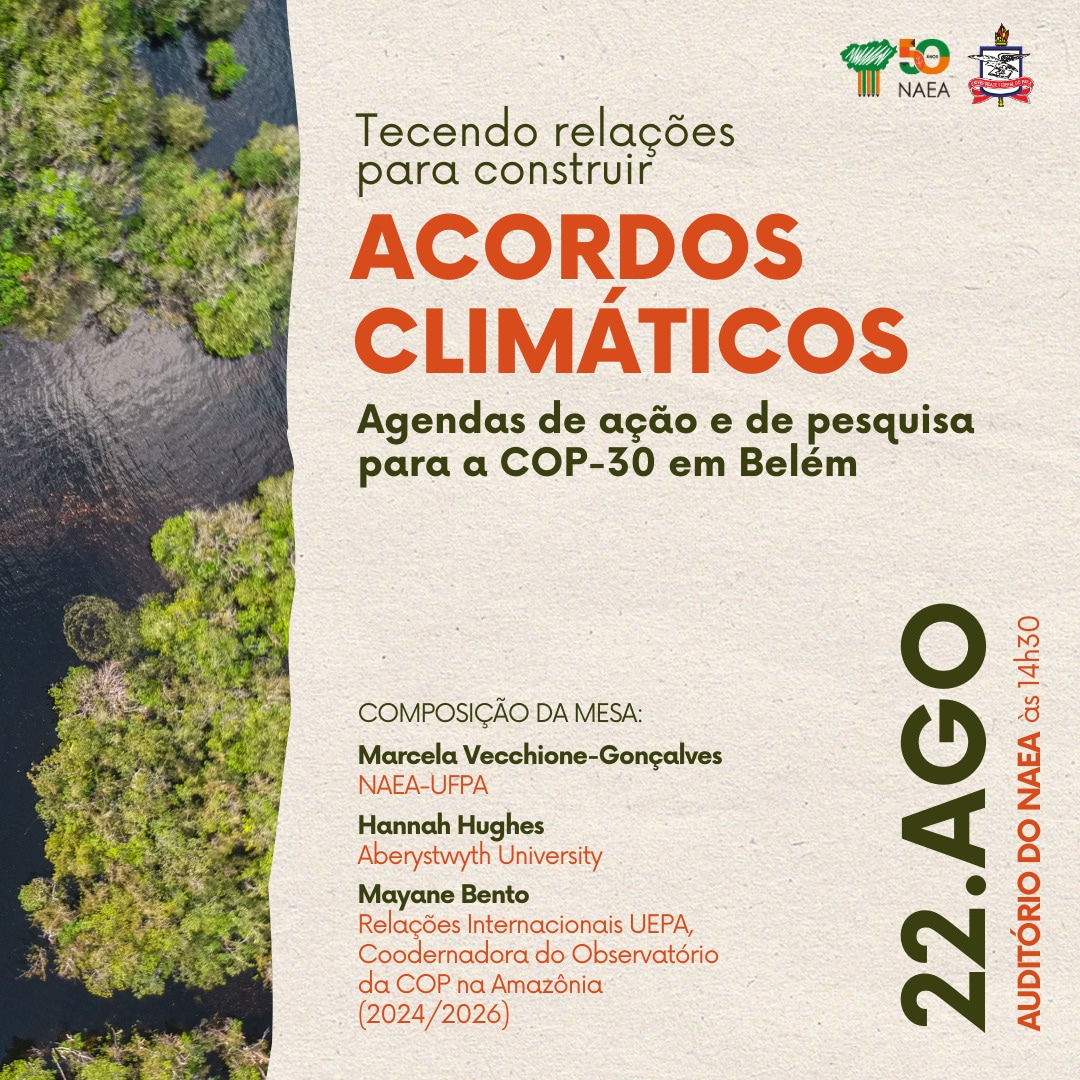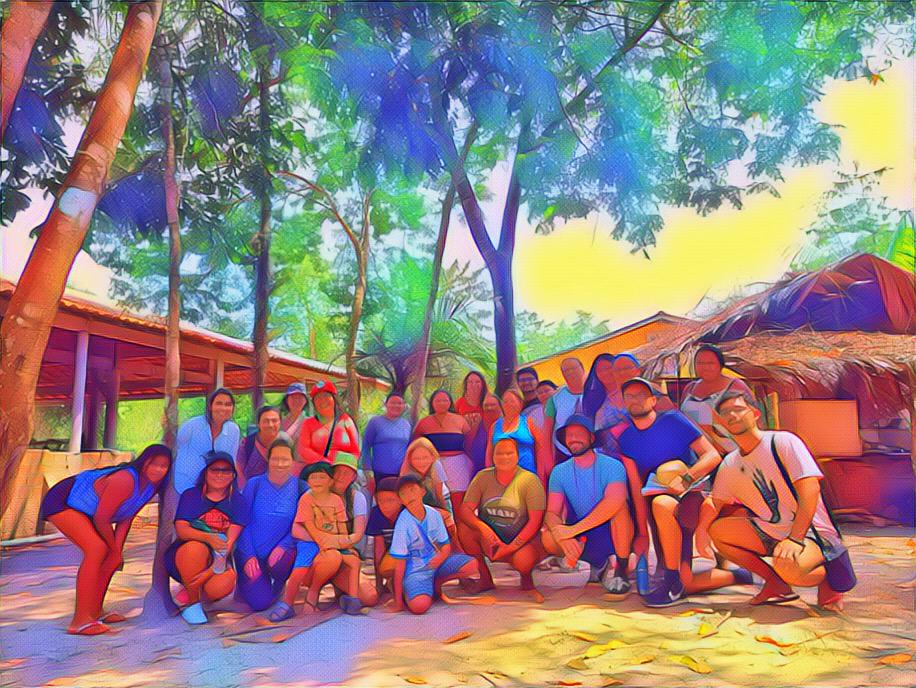On Monday 18th of August 2024, the first workshop of the British Academy funded project Centring Climate Agreement-Making in and from the Amazon Rainforest (CAMAMAZON) opened at the Núcleo de Altos Estudos Amazônicos (NAEA), Federal University of Pará in the city of Belém.
This project follows Brazil’s presidency of the UN climate negotiations (COP30), which will be hosted in the Amazon city of Belém in November. As a project, we are interested in how the Amazon Rainforest is mobilised in the political strategies and activism of four actor groups: Indigenous Peoples, youth, science and government. The aim is to explore the place that the Amazon holds in climate politics and the Amazon that is made through the process. Our objective is to contribute to and support the realisation of outcomes that enable the Amazon peoples and their forests to thrive, and to use the understandings gained as a basis for reconceptualising International Relations.
To achieve the project’s objectives and to enable the project to follow how the four study groups mobilise for this event, project team members Marcela Vecchione-Gonçalves and Veronica Korber Gonçalves, invited local and national representatives of organisations to participate in the workshop. The invited participants served as focal points – a point of contact between the project and the broader organisation – through which collective interests and concerns in the Amazon, climate change and COP30 could feed into and shape the design of the research project, the shared values that underpin it and its final products. These invited participants were as follows: Auricelia Arapiun (Coordination of Indigenous Organizations of the Brazilian Amazon – COIAB), Dr João Nackle Urt (Ministry of Indigenous Peoples; Federal University of Roraima), Professor Francisco de Assis Costa (NAEA – Federal University of Pará; Science Panel for the Amazon (SPA), and Matheus Botelho Braga, Kimberly Silva and Neil Soares Maré Cheia (COP das Baixadas).

The project was quickly forced to confront the everyday reality of violence faced by Indigenous struggles in the Amazon. We received a message from Auricelia to say that she wouldn’t be able to join us because her home had been attacked and she was moving her family to a safe house. The attack was most likely political intimidation for standing in local elections. The shock of this news brought to the surface insecurities sat within each of us around the table. A personal reflection exercise, led by project team member Erzsebet Strausz, enabled us to voice these deep seated feelings about the inadequacy of academic work in the face of this struggle. As we all walked away from an emotional first meeting, the pressing concern of how to bring Indigenous perspectives into the co-design of the project remained on the table.
Day 2 brought presentations from our project partners. As I listened to these, I was struck by the diversity of knowledges and the strategic development and deployment of these. Our youth partners – Matheus Botelho Braga, Kimberly Silva and Neil Soares Maré Cheia – representating COP das Baixadas, articulated the critical importance of their own unique relationship to the river and to the islands in Belém. They identified the need to produce knowledge products that authorised their participation in discussion and negotiation of climate adaptation at all sites and levels of policy action that intervene to shape this relationship, from the community to the COP. Our science partner, Professor Francisco de Assis Costa, highlighted the inadequacy of dominant economic models for analysing and understanding the diverse actors and processes constitutive of the Amazon economy. Our government partner, João Nackle Urt, desribed how moving into Lula’s government offered him the potential to practice his political commitments. As an academic with extensive work on Indigenous issues, being part of the newly created Indigenous Peoples’ Ministry enables João to contribute to public policy formulation and engage in the public debate from an alternative position and perspective.
For those that live and work in Brazil, and the Amazon specifically, recognition of the significance of producing, diversifying and acting on different knowledges is not new. As Arturo Escobar (2008) documents in relation to Colombia, it is necessary to challenge dominance from the periphery and to craft alternative life projects. However, for me, someone that has studied a global process of knowledge production through the Intergovernmental Panel on Climate Change (IPCC), it stood out as unique, and critical to making collective action more reflective of the diversity of ways of living and knowing, which are yet to be reflected in the global practice of writing climate change.
Belém’s research community has already mobillised to produce and disseminate knowledge of the global negotiation process to facilitate community and student engagement in the politics of COP30. Researchers from NAEA and the International Relations Department at the University of the State of Para (UEPA) participated in the workshop sessions to ensure the project’s objectives align with and are in support of these activities. The results of the workshop discussions and the key considerations for ongoing project development were presented at a NAEA departmental research seminar, which offered the opportunity for undergraduate students of International Relations and the broader scholarly community within this critical centre of Amazonian studies to raise questions and to input into the formation of the emerging project framework.
We are extremely grateful to NAEA for hosting this event and for the participation and input by Sabrina Mesquita do Nascimento (NAEA, Federal University of Pará), Nathália Tavares de Almeida (NAEA, Federal University of Pará), Suenya Cruz (NAEA, Federal University of Pará / Universidade Federal Fluminense), Tienay Picanço (Universidade Estadual do Pará (UEPA), Brenda Costa (Universidade Estadual do Pará (UEPA), Mayane Bento Silva (Universidade Estadual do Pará (UEPA).

At the end of the 3-day workshop, Marcela arranged for us to visit the Pirocaba community – Associação dos Agroextrativistas, Pescadores, e Aertesãos do Pirocaba (ASAPAP). This opened the project to the final pillar of its formation, which was ensuring that a relation to the forest, and the defence of the forest as a territory, lived community and livelihood, is foundational to the project, its collaborative relations and its collective thought and practice. This trip allowed us to meet with community members, for us to share our journeys and hopes for our projects, and to walk through gardens and learn of their place in building and protecting the community from ongoing threats. Daniela Araújo, the community leader, spoke about the ecological practices that they had developed to cultivate and sustain the land and how these had changed her family and community relations. Threats remained all around – the building of a port, the poisoning of the water, ensuring the local government continued to buy their produce for school meals – but in the face of these ongoing struggles a life project was being realised. When I learned about the violence that prevented Auricelia coming to the workshop I couldn’t grasp this lived reality of struggle. And here, again, with my feet on the soil, I was experiencing a sense and strength of community that I had never known or lived.
References
Escobar, Arturo. 2008. Territories of Difference: Place, Movements, Life, Redes. Duke University Press. doi:10.1215/9780822389439.
